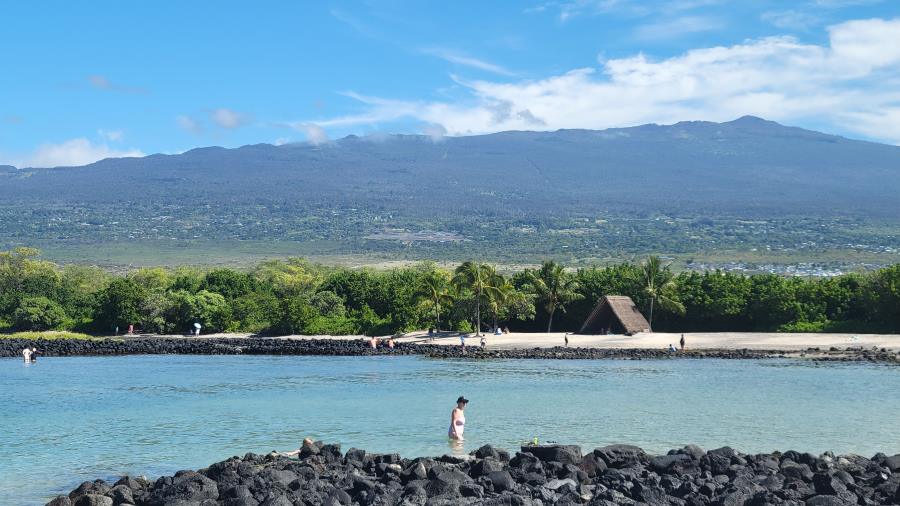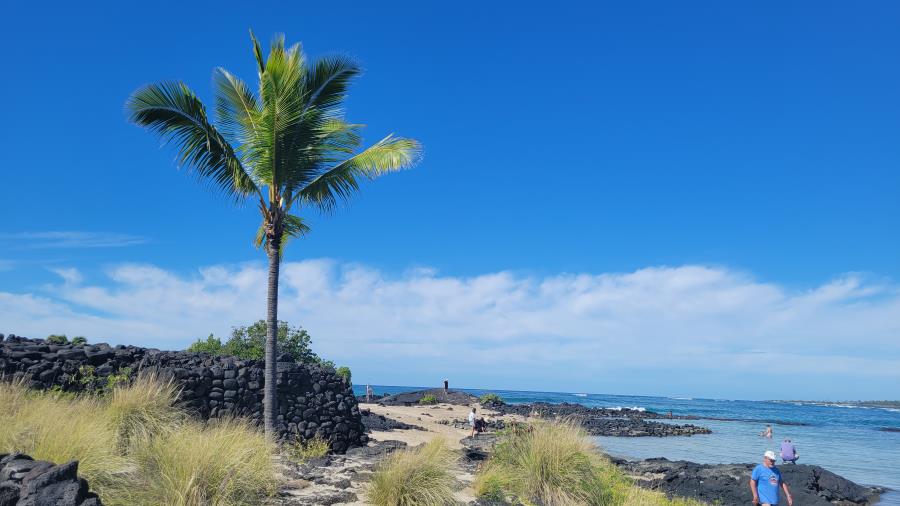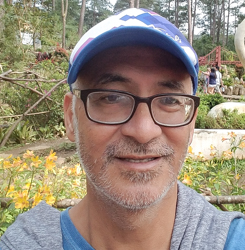Kaloko Honokohau National Historic Park: Delve into the Rich History and Natural Beauty

Located just south of the Kona International Airport, the Kaloko Honokohau National Historic Park used to be an early Hawaiian settlement that covered over 1160 acres in the coastal area of Kona. The area is filled with ancient heaui (Hawaiian temples), fish ponds, kiʻi pōhaku (rock carvings) and some recreated Hawaiian structures that showed how many of the ancient people lived, fished and developed a community based in this ancient district.
Visitors to this national park can go to the visitor’s center and then take trails to the coastal area and visit the historic sites or even walk parts of the Ala Kahakai National Historic Trail to discover more historic sites and landmarks in this area.
Quick Plan your West side Big Island Itinerary
Are you in a rush on a last-minute trip to visit the West Side, Big Island? Well then, try our jump start guide to book the best tours and hotels
below.
Pro Tip – Since you are planning to visit Full circle island tour to enjoy with great views and tour of the BIg Island
Top Tours to Try in the West side
Volcanoes Naional Park tour – Day Trip Tour
Private Helicopter tour– Top Rated
Manta Ray Dive – Easy tour classes
Where to Stay in around the West Side
Aston Kona by the Sea – Kailua Kona
Marriott King Kamehameha hotel – Kona Resort
Outrigger Kona and Spa – Kona Resort

Visiting the national park and visitor’s center
Located close to Honokohau harbor, the visitor’s center is just off the main Highway and less than 3 miles from downtown Kona. Follow directions from the highway to the parking lot and you will find maps and can talk to the rangers on what you can visit within the timeframes you have available to explore the site.
If you are coming from Kona airport, it is about 3 miles south and going towards downtown.
The Kaloko Honokohau National Historic Park is significant because it preserves historic and intact sites that dates back to prehistoric times of the ancient native Hawaiians.
It is the mission of the center and park to preserve, educate and perpetuate the Hawaiian cultural heritage by offering visitors and local people to visit and connect with the historic sites and Mana (energy forces) of the area.
Visitor center hours
Open from 8:00am to 5:00pm daily. For more information, visit the National Park Service Kaloko-Honokohau National Historical Park website or call the visitors center at 808-326-9057.
How to get to Kaloko Honokohau National Historic Park
To get to Kaloko Honokohau National Historic Park, located on the western coast of the Big Island of Hawaii, follow these directions:
- By Car: If you have access to a car, driving is the most convenient way to reach the park. From Kailua-Kona, take Highway 19 (Queen Kaahumanu Highway) northbound. Continue on Highway 19 until you reach the Kaloko Honokohau National Historic Park entrance, which is located just south of the Kona International Airport. Look for the park signs along the highway to guide you.
- By Bus: The Hele-On Bus service, operated by the County of Hawaii, offers limited service to Kaloko Honokohau National Historic Park. Take the bus that runs along Highway 19 (Queen Kaahumanu Highway) and inform the driver that you want to get off at the park. It’s advisable to check the bus schedule in advance, as the frequency of service may vary.
- By Taxi or Ride-Sharing Services: Taxis and ride-sharing services like Uber and Lyft are available on the Big Island. You can request a ride to Kaloko Honokohau National Historic Park, and the driver will drop you off at the entrance. This option provides flexibility and convenience, particularly if you prefer not to drive or use public transportation.
Once you arrive at Kaloko Honokohau National Historic Park, there is ample parking available near the visitor center. From there, you can explore the park’s trails, historical sites, and beautiful coastline.

History of Kaloko Honokohau
This significant part of Kona carries a lot of cultural treasures and historic significance that gives it a national park historic designation. The area is part of the Hualalai volcano which was home to hundreds of ancient Hawaiian people. Living in a land division called an ahupua’a that extends from the mountaintop all the way to the shoreline and into the ocean.
Hawaiians thought of the land not just as a place to live but as an entity that possessed mana or spiritual power from the environment. Today at Kaloko-Honokōhau National Historical Park tries to educated and perpetuate the spirit of mālama ka ‘āina or “care for the land.”

These native Hawaiians sometimes speak of a mo’o, a water-dwelling guardian spirit, who rests on a rock as it watches over Kaloko fishpond. The mo’o is a spiritual that is well respected and allowed for bountiful fishing. But if there was disrespect to the land or sacred waters, the mo’o would take all the fish away and punish those that did the wrong doing.

Main landmarks and attractions to visit at Kaloko Honokohau
This once thriving Hawaiian settlement contains over 200 historic archealogical sites and was primarily a place to harvest fish, maintain the fish pond construction along with growing taro, breadfruit, coconuts, gourds and raising animals like pigs and chickens.
This area incorporated an ancient Ahipua’a spanning from the ocean up to the mountains where different areas concentrated on food production, fish processing to areas in between that concentrated on what can be grown or utilized from a certain geographic location and then traded with other ohana (family)
The main historic sites to be found at the historic site includes:

Ancient fish ponds – The fishponds are comprised of the Kaloko Fishpond, Aimakapa Fishpond, and the ‘Ai’opio Fishtrap. These show how ancient Hawiians harvested from the sea with these two inland bays that were converted into fish ponds with channels dug out to the ocean to refresh the inland bays and have been functioning for over 600 years.
The ponds were created with dry stacked rocks that were built out into the ocean and separating with this sea wall and sluice gates that allowed seawater to enter pond area. You can see the pond and fish trap spanning stone and coral wall that formed the 1.7 acre ‘Ai’opio Fishtrap.
You can do a self-guided foot trail to view Kaloko Fishpond, Aimakapa Fishpond, and the ‘Ai’opio Fishtrap and admire the well done and ingenious creation of the fish ponds and trap.

Canoe house – there is a recreated canoe house at the fish pond area that shows how the area was used as a launching area for canoes along with various other relics found in the area.

Beach area
There is a nice beach area to also relax after exploring the traps or check out the heaui nearby

Historic Heiau – the main heiau in the complex is located close to the fishpond and the fish trap. The heiau remains are a large stone platform and was used primarily as a place of worship to the local gods and religious services dedicated to war, fishing, agriculture, medicine and ocean navigation. Ancient Hawaiians would assemble and give offerings of plants, goods and chant, dance and song to their deities.
You can take various trails to hike along the Mamalahoa Trail, the Ala Kahakai National Historic Trail, or the Ala Hele Ike Trail taking in the many native plants, stone walls, and house platforms, just as the Hawaiians did many years ago.
Included in the area, you will find ki) Stone mounds serving as shrines and altars, Kokane game boards, A holua (toboggan run slide) lava tube shelters and trails that includes the Kings trail

Inside tips to visiting Kaloko Honokohau National Historic Park
Inside Tips for Visiting Kaloko Honokohau National Historic Park
- Plan Your Visit: Before heading to the park, it’s helpful to plan your visit. Check the park’s website or contact the visitor center to gather information about opening hours, guided tours, and any special events or programs that may be happening during your visit. This will help you make the most of your time at the park.
- Wear Comfortable Attire: As you explore the park, wear comfortable clothing and sturdy footwear suitable for walking on uneven surfaces. The park has trails and paths that can be sandy or rocky, so closed-toe shoes are recommended. Don’t forget to bring sun protection such as hats, sunscreen, and sunglasses, as the Hawaiian sun can be intense.
- Bring Water and Snacks: It’s important to stay hydrated while exploring the park, especially if you plan on spending a significant amount of time there. Carry a reusable water bottle and some light snacks to keep you energized throughout your visit.
- Respect Wildlife and Environment: Kaloko Honokohau National Historic Park is home to a variety of native plant and animal species. Help preserve the natural environment by refraining from feeding or approaching wildlife and by staying on designated trails. Remember to leave no trace and dispose of any waste properly.
- Visit the Visitor Center: Stop by the park’s visitor center upon arrival. The knowledgeable staff can provide you with maps, brochures, and additional information about the park’s history, cultural significance, and points of interest. They can also answer any questions you may have and offer suggestions for the best routes to explore.
- Take Guided Tours: Consider joining a guided tour offered by the park. These tours provide in-depth knowledge about the park’s history, Hawaiian culture, and the significance of its archaeological sites. It’s a great way to gain a deeper understanding of the park’s heritage and make the most of your visit.
- Capture Memories: Bring a camera or smartphone to capture the stunning natural beauty, historic sites, and scenic views within the park. Photography is permitted, but be respectful of any signage or guidelines indicating areas where photography may be restricted.
- Enjoy the Beach: Kaloko Honokohau National Historic Park features a beautiful sandy beach where you can relax and enjoy the coastal scenery. Take a dip in the ocean, have a picnic, or simply soak in the tranquil atmosphere. Remember to follow any beach safety guidelines and be cautious of ocean conditions.
Other Attractions to visit in the area
Things to do in Waikoloa Village

Conclusion to Kaloko Honokohau National Historic Park
For outdoor enthusiasts, the Kaloko Honokohau National Historic Park is a definite must do on the west side of the Big Island and filled with ancient Hawaii treasures.
Thanks for checking out this post on doing the Kaloko Honokohau National Historic Park. Hope the post was informative and a must read article – if so please do share it with any of the social media buttons around the page.
Disclosure – This article and related articles may have some affiliate links. This means that we earn a commission from qualified purchases and bookings at no additional costs to you.


0 Comments
Trackbacks/Pingbacks